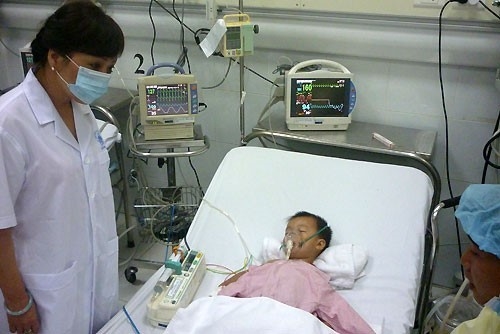 Society
Society

As many as six more cases of Japanese encephalitis (JE) have been reported in Hà Nội over the past week, raising the total cases to nine, the city’s Preventive Medicine Centre announced yesterday.
 |
| As many as six more cases of Japanese encephalitis (JE) have been reported in Hà Nội over the past week, raising the total cases to nine. — Photo vietnamnet.vn |
HÀ NỘI — As many as six more cases of Japanese encephalitis (JE) have been reported in Hà Nội over the past week, raising the total cases to nine, the city’s Preventive Medicine Centre announced yesterday.
Following the complicated progress of the disease, Deputy Head of Hà Nội’s Health Department Hoàng Đức Hạnh asked the city’s Preventive Medicine Centre to step up monitoring at hospitals and in communities, to diagnose infectious cases and take action to localise and stamp out the outbreak.
Local clinics have been asked to conduct trainings for health workers on how to: diagnose and treat the disease, report cases to commune and district level health centres, and refer patients to the Preventive Medicine Centre for further treatment.
The Preventive Medicine Centre has been assigned to supervise units in conducting a high-quality and safe vaccination program, while ensuring the vaccination target rate.
JE is caused by the mosquito-borne Japanese encephalitis virus which can spread the disease throughout the year, especially in summer. The disease is more common among children under 15. Pigs and birds are reservoirs of the virus.
Symptoms of JE - commonly known as "brain inflammation" - include high fever and nausea, as well as seizures, paralysis and coma in severe cases.
Health experts estimate that about one-third of patients die from the JE virus. The other one-third to one-half of patients who survive suffer from nerve damage after-effects.
The Japanese encephalitis vaccine was added to the monthly National Immunisation Programme last year, Associate Professor Trần Đắc Phu, Head of the Department of Preventive Medicine said. Children under the age of five must be vaccinated for the virus three times, according to the programme schedule.
To curb the spread of JE, the Health Ministry said people should keep their homes clean, keep livestock cages away from their residences and children, and use mosquito nets while sleeping. — VNS




